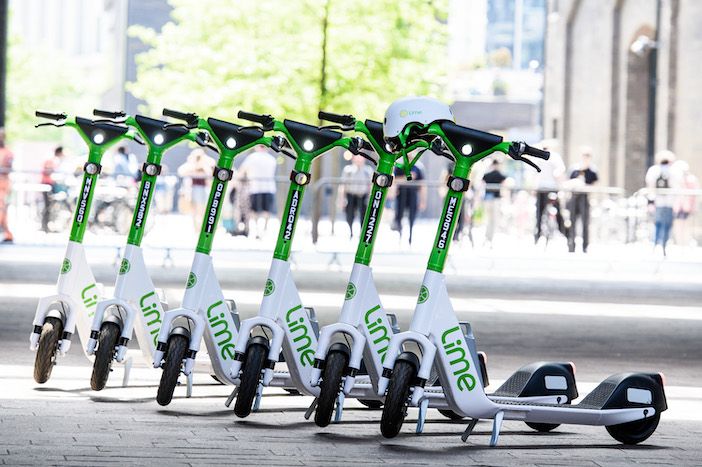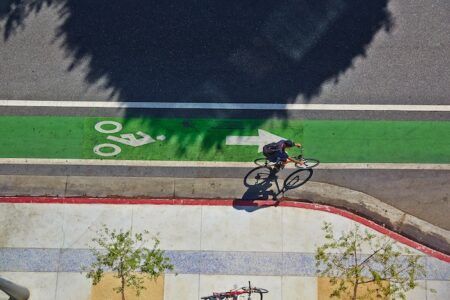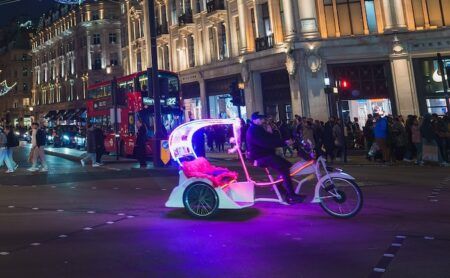Lime has joined with two other e-scooter operators Dott and Tier today to begin London’s first ever e-scooter trial. Lime has deployed 200 of its latest Gen4 e-scooters across London, working with Transport for London (TfL) and London Councils to launch the UK’s largest for hire e-scooter trial.
The trial, involving all three operators, will take place in Ealing, Hammersmith & Fulham, Kensington & Chelsea, Richmond, Canary Wharf and Tower Hamlets. Riders will only be able to park the e-scooters in designated bays within participating boroughs. New boroughs will be able to join the trial at the end of each month, with at least two more central London boroughs expected to join the service in July. Fleets will increase throughout the trial to serve these new boroughs, and on the basis of its performance in existing boroughs.
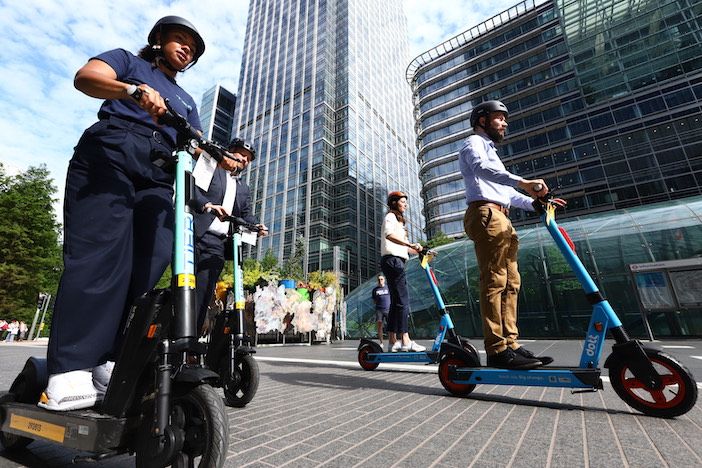
Londoners will now be able to hire Lime e-scooters, alongside Lime’s e-bikes – which it has successfully operated in the capital since December 2018, delivering over 3 million zero-carbon rides and saving users an estimate of over 750,000 car journeys. The launch of Lime’s e-scooter service in London comes just in time for summer and the easing of Covid-19 restrictions, with riders now able to access two safe and sustainable transport options in a single app.
Riders will be able to locate and hire Lime e-scooters via its app, but will need to scan their driving licence and successfully complete a virtual safety test before the vehicle can be unlocked. The scooters will cost £1 to unlock, and 16p per minute to ride.
“Safety remains our number one priority for this trial and we will work closely with the e-scooter operators, London Councils and the boroughs to ensure rigorous standards are consistently met,” says Helen Sharp, TfL’s e-scooter trial lead. ” We will also continue to work closely with all of our stakeholders, including TfL’s Independent Disability Advisory Group, to ensure that the trial meets the needs of everybody living in, working in and visiting the trial areas. This new trial will provide the data and insights we need to determine the longer-term role e-scooters could play in our strategy for a greener and healthier future for London.”
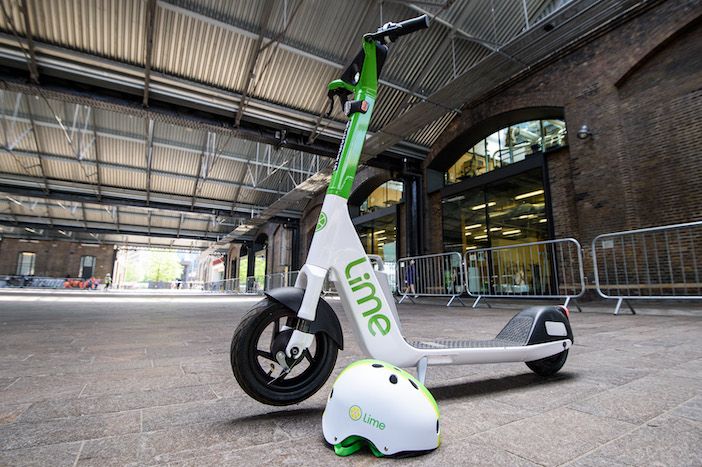
“Wherever we operate, safety is always our number one priority, which is why Lime continues to invest in industry leading software and hardware safeguards, such as highly accurate geofencing to control rider speed and behaviour, and on-vehicle technology which can detect pavement riding,” says Alan Clarke, director of policy and government affairs, for Lime in northern Europe. “This tech is designed to make our scooters safer for our riders, other road users and pedestrians, helping to create a well managed and responsibly used service that benefits riders and the cities they ride in. We’re proud to be serving London with another great transport option, and can’t wait for Londoners to try it out for themselves!”
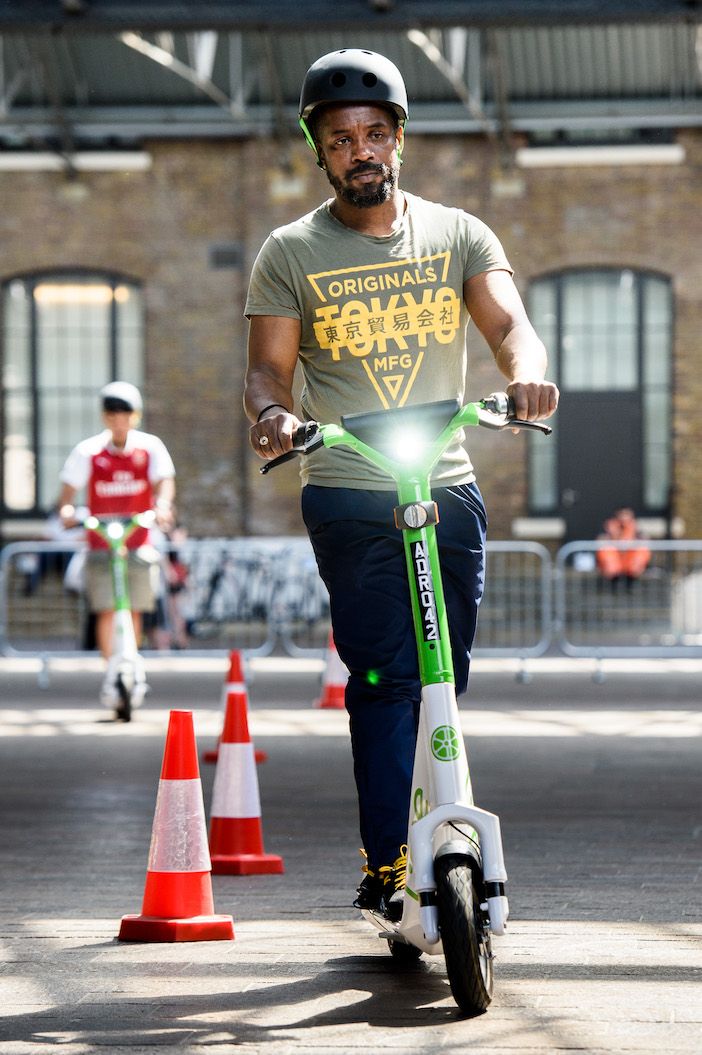 To help new riders get to grips with the capital’s latest mode of transport, Lime is launching a series of ‘First Ride Academies’ in participating boroughs, which will teach users how to ride safely and park responsibly. In addition to the mandatory training users will complete prior to riding an e-scooter, Lime has also worked with the AA to provide further safe riding resources via an online Driving School, Learn to Lime UK.
To help new riders get to grips with the capital’s latest mode of transport, Lime is launching a series of ‘First Ride Academies’ in participating boroughs, which will teach users how to ride safely and park responsibly. In addition to the mandatory training users will complete prior to riding an e-scooter, Lime has also worked with the AA to provide further safe riding resources via an online Driving School, Learn to Lime UK.
With a maximum speed of 12.5 mph, a braking distance twice as fast as other rental e-scooter models, nine high-visibility reflectors, puncture proof wheels, mountain-bike inspired suspension, always-on LED lights and a double kickstand for stability, the Gen4 is built for safety.
Hyper-sensitive geofencing technology will also ensure e-scooters are not used or parked outside of designated areas and parking bays, and swappable batteries also reduce the overall environmental impact of maintaining the fleet. Lime uses e-cargo bikes to make battery swaps rather than having to transport scooters to and from warehouses for charging.
“The London e-scooter trials are bigger than Dott, Lime and Tier. It’s bigger than just one city too. Today marks a pivotal moment in the future of all e-scooter brands in Britain,” comments Jack Holloway, a mobility branding expert at Landor & Fitch. “If the trial is a success, the vision we’ve been promised of green and affordable inner-city transport could become a reality. But safety has always been the big question. This is the critical time for e-scooters to prove they can deliver an intuitive, safe and accessible experience. TFL will be hoping it comes off too, with tough pollution reduction targets to hit within the next few years. Get this wrong and it could be a long time before the scooter tech gets another chance to secure the official green light.
“If e-scooters do eventually become an accepted part of our transport network, the competition is fierce and there’s no guarantee even the brands delivering the trial will become the e-scoooter of choice. They all currently occupy the same space: sustainability. But there’s an opportunity for brands to differentiate themselves from their competitors – perhaps by demonstrating their product lasts longer, or by delivering a truly accessible and inclusive experience.
“In the end we’ll know who has won the battle when we see which brand becomes the verb for picking up an e-scooter – like grabbing an Uber or jumping on a Zoom. Fancy a Tier anyone?”


